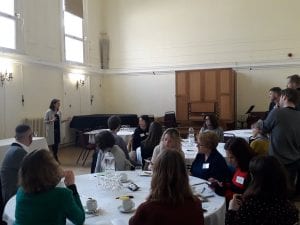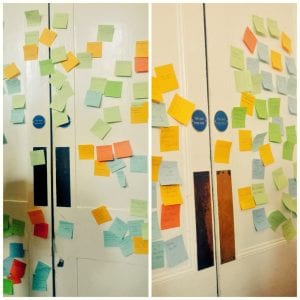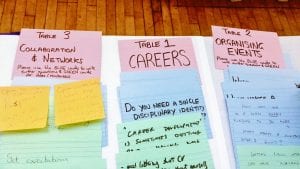The CHHS were joined by Dr Anna Farthing, on 03/10/18, to discuss ‘Culture in hospital settings: a conversation with UHBristol Arts Programme Director’
Dr Anna Farthing’s role is to ‘develop and implement a wide-ranging and high impact strategy incorporating diverse art forms from pictures to performance’. The University Hospitals Bristol NHS Foundation Trust‘s first ever arts programme director is a role funded for 18 months by the charity Above & Beyond but accountable to the Trust’s chief executive. Farthing has been tasked to support the psychological and social needs of both patients and more than 9,000 staff, as well as help the Trust’s hospitals such as the BRI, St Michael’s and Children’s Hospital engage with Bristol’s civic community. The new role has been created as a response to increasing evidence of the links between wellbeing and engagement in creative and cultural activities. Farthing has previously worked with organisations including Tobacco Factory Theatres, M Shed, Bristol Green Capital, Bristol Festivals and Bristol Doors Open Days. She has a PhD from the University of Manchester and is a visiting fellow at the University of Bristol. [from: https://www.bristol247.com/news-and-features/news/new-role-created-bring/]
Contact: Anna Farthing



